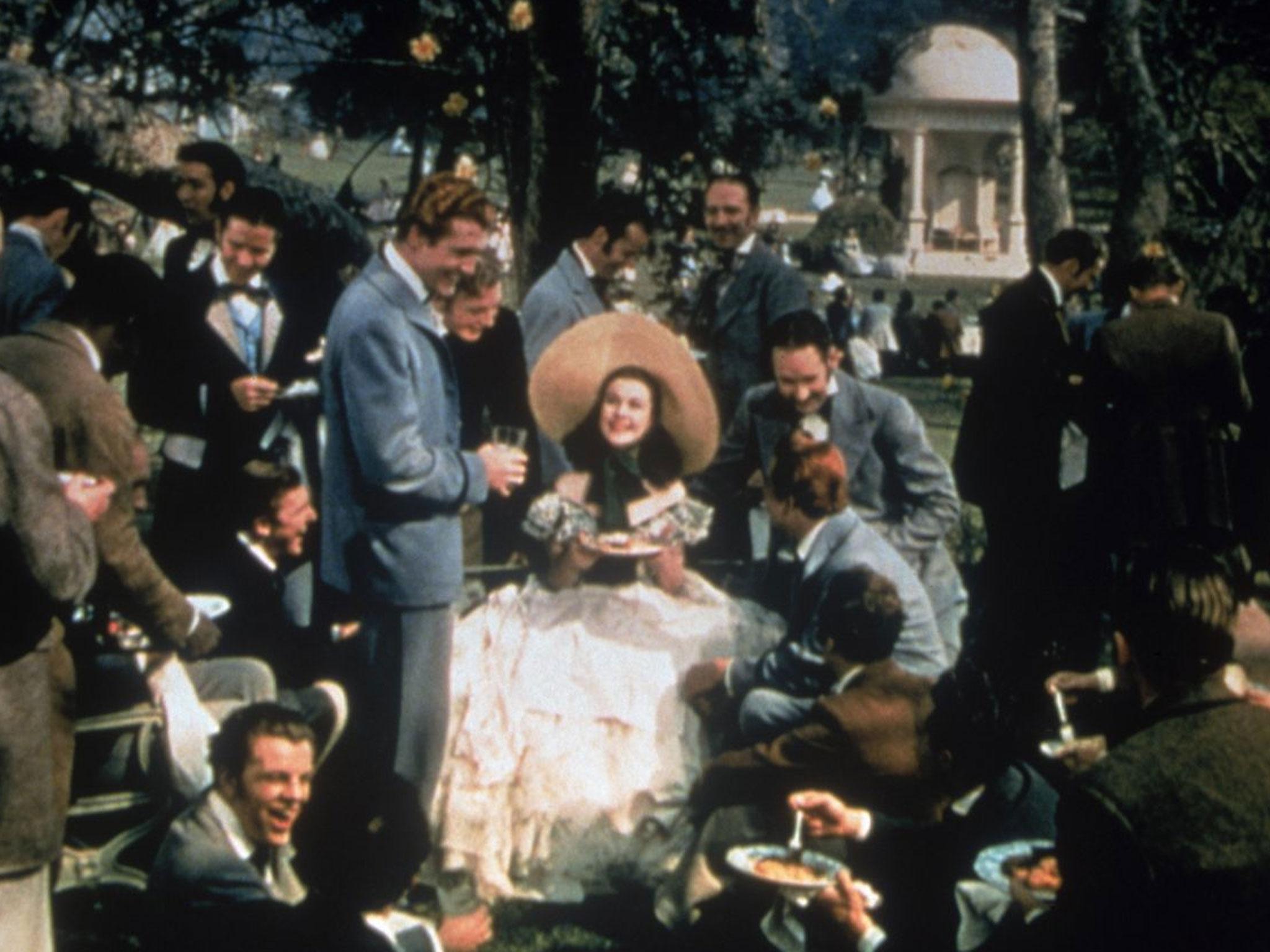Why I can’t help loving Scarlett
Gone with the Wind an embarrassing anachronism? Helen Taylor thinks not

Your support helps us to tell the story
From reproductive rights to climate change to Big Tech, The Independent is on the ground when the story is developing. Whether it's investigating the financials of Elon Musk's pro-Trump PAC or producing our latest documentary, 'The A Word', which shines a light on the American women fighting for reproductive rights, we know how important it is to parse out the facts from the messaging.
At such a critical moment in US history, we need reporters on the ground. Your donation allows us to keep sending journalists to speak to both sides of the story.
The Independent is trusted by Americans across the entire political spectrum. And unlike many other quality news outlets, we choose not to lock Americans out of our reporting and analysis with paywalls. We believe quality journalism should be available to everyone, paid for by those who can afford it.
Your support makes all the difference.Steve McQueen's powerful and uncompromising 12 Years a Slave, winner of three Oscars including Best Picture, has been hailed as a milestone in black artistic success and truth-telling about the institution of slavery.
This film, made by a British director who dedicated his Oscar to "the 21 million people who still endure slavery", followed other recent treatments of the subject, from Amistad (1997) and Beloved (1998) to Django Unchained and Lincoln (both 2012).
Yet for many decades, slavery in the Deep South and the traumatic American Civil War have been the subject of bestselling novels adapted for film and TV: Uncle Tom's Cabin, Birth of a Nation, Roots. The best-known and loved is Margaret Mitchell's Pulitzer Prize-winning novel Gone with the Wind (1936) made 75 years ago by David O Selznick Jr into a film generally regarded (with its eight Oscars) as the crowning glory of Hollywood's Golden Age. Even if they've never read the book or seen the film, almost everyone has heard of Gone with the Wind.
GWTW prompts many a superlative: "legendary", "classic", "golden", "one of the greatest literary experiences a reader can have", "one of the most powerful anti-war novels ever written". Lines from book and film – "Tomorrow is another day, ,"Don' know nuthin' 'bout birthin' babies", "Frankly, my dear, I don't give a damn" – are quoted repeatedly in novels, films and TV comedies. The recent spate of progressive and revisionary novels and films about slavery are in many ways robust responses to a work that, in popular imagination, has defined Southern history for three-quarters of a century.
Whenever there's a significant anniversary of GWTW, new publications, screenings, exhibitions, sequel novels and TV parodies remind us of the huge impact of this work. At last year's Victoria & Albert Museum "Hollywood Costume" exhibition, the display arousing most excitement was that of the green velvet dress and hat made out of Tara's curtains by Mammy, for Vivien Leigh's Scarlett O'Hara. In the words of Laurence J Kirshbaum, then president of Warner Books, "GWTW looms larger and larger in our collective memory as the years go by."
In 2014, with an African-American US President serving his second term of office, numerous countries trying to make reparation for the slave trade and slavery, and global awareness of the tragic consequences of racial divisions, you'd imagine GWTW would be an embarrassing anachronism. One recent commentator dubbed it "a romance set in Auschwitz".
Many liberal-minded women see their enthusiasm for Gone with the Wind as a kind of dirty secret. We feel a little ashamed of our huge pleasure in the romance, nostalgia, drama and tragedy of the white protagonists, particularly the magnificent Scarlett O'Hara. Novelist Hilary Mantel read the book in the mid-1960s as teenager, politically aware US civil-rights struggles, and was uneasy at its racial agenda. "So I couldn't read it as a story any more. But part of me turned the pages faster and faster."
There's the rub. From interviews with and questionnaires to women for my book Scarlett's Women: Gone With the Wind and its Female Fans, I received a range of responses across generations and races, but even when women recognised the reactionary political subtext of this work, they claimed it was a literary landmark and life-changer. For it offers an epic drama from the perspective of a feisty and fascinating female protagonist, possibly our only epic heroine to survive and thrive through a full range of female experiences.
No wonder it maintains a special place in female hearts.
Helen Taylor is the author of 'Scarlett's Women' (Virago), available in paperback, £7.99
Join our commenting forum
Join thought-provoking conversations, follow other Independent readers and see their replies
Comments